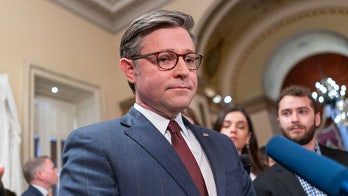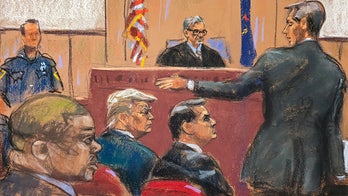As President Obama prepares to rev up his re-election drive with his third State of the Union address Tuesday night, he and his aides have already begun framing the fall contest as a “choice” election, not a simple up-or-down referendum on his own job performance in the Oval Office.
In so doing, the president borrows a page from an unlikely playbook: that of the man he has spent the last five years disparaging, George W. Bush.
It was President Bush, in his 2004 matchup against John Kerry, who perfected the “choice” strategy. Buffeted by mounting opposition to the Iraq war, the incumbent argued that the alternative to a second Bush term – that being the Democratic senator from Massachusetts – was so dangerous that voters should put aside any misgivings they might have about the president.
“We have not seen a choice this stark in years,” Obama told the friendly audience at Harlem’s famed Apollo Theater on Thursday. “The contrast this year could not be sharper. So the question is not whether people are still hurting; people are still hurting profoundly. A lot of folks out there still out of work looking for work. The question is, what do we do about it?”
Obama’s incentives for following that approach are not difficult to discern. The latest Fox News poll finds registered voters nationwide effectively split on whether they approve or disapprove of the president’s job performance. And two-thirds of respondents are displeased with the country’s direction, which is up four percentage points from one year ago.
“It’s going to be incumbent on the president to make clear to everyone that there are two differing philosophies here,” said Erik Smith, a Democratic media strategist who formerly served as a House leadership aide. “And the flip side of that is the president not only having to talk about what he's done and defend that but be able to describe what the alternative course is.”
Enter Newt Gingrich. Many GOP operatives and conservative commentators have expressed fear that if the former House speaker were to become the nominee, Gingrich, with his complex personal and professional past, would also become the campaign’s central issue – and thereby allow Obama off the hook for his record.
During his victory speech after the South Carolina primary Saturday night, Gingrich appeared to address such concerns. Like Obama, he framed the fall contest as “choice” election, but obviously with very different alternatives than those sketched out by the president.
“The debate we're going to have with President Obama over the next eight or nine months [involves] the outlining of the two Americas,” Gingrich told his supporters.
“The America of the Declaration of Independence; the America of [radical organizer] Saul Alinsky. The America of paychecks; the America of food stamps. The America of independence; the America of dependence. The America of strength in foreign policy; the America of weakness in foreign policy.
"Those two choices, I believe, will give the American people a chance to decide permanently whether we want to remain the historic America that has provided opportunity for more people of more backgrounds than any country in history, or whether in fact, we prefer to become a brand new secular, European-style bureaucratic socialist system.”
Pete Snyder, a veteran Republican media strategist currently active in Virginia races, suggested that the “choice” model is open to whomever the GOP nominee is, but that it is inherently less effective than one designed to keep the focus squarely on the president.
“(Obama) would love for this to be against an opponent that 99 percent of America have a formed opinion about,” Snyder said, referring to Gingrich. “Then (Obama) gets to have this be a choice, and not a referendum on him. ... Why do you want to fight on harder, rockier terrain, when you can go for the easier path -- the path that the president doesn't want to talk about, which is about the economy, and which is about his record?”
For Obama, the perils of the “choice” model are clear. George W. Bush won re-election with the slimmest popular-vote margin of any Republican incumbent in U.S. history.





